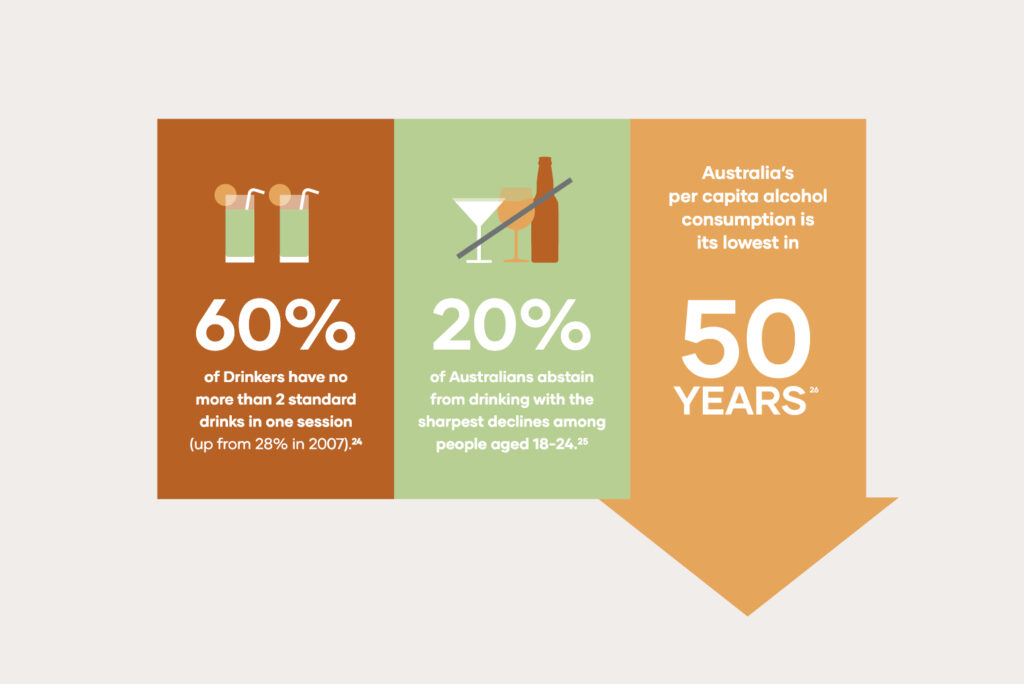Drinking trends across Australia are changing dramatically, and for the better.
The most comprehensive independent data on Australian drinking trends, the National Drug Strategy Household Survey conducted by the Australian Institute of Health and Welfare, found that over the last 10–15 years there have been significant declines in people drinking at risky levels. Most Australians are drinking less frequently on a daily and weekly basis, and more are deciding not to drink at all.
Australians are choosing to consume more premium drinks, less frequently, than drinking in greater quantities, and their choices increasingly blur the traditional categories of ‘beer’, ‘wine’ and ‘spirits’.
Spirits consumers play the biggest role of any alcohol drinkers in supporting more premium, higher value revenue growth. This is consistent across consumption in venues and at home consumption, across socio-economic and age demographics, and in regional and metropolitan locations.
There has been some media speculation that in response to the COVID pandemic and long periods of lockdown, Australia’s consumption of alcohol has increased. The Australian Institute of Health and Welfare (AIHW) reported in December 2021 that “to date, no clear patterns of the effects of COVID-19 restrictions on alcohol and other drug consumption have emerged, with many people reporting unchanged levels of consumption. Longitudinal data now available suggest that participants in these surveys may have initially increased or decreased consumption, but then reversed that pattern of consumption at the next data collection point.”
The AIHW noted a spike in alcohol sales in March 2020, driven by speculation that liquor stores would shut as part of the restrictions for the first lockdown. This spike dropped in April 2020 and by the second half of 2021, sales data had returned to pre-COVID trends. The forecast is a return to longer term consumption trends, which for total alcohol consumption have remained relatively unchanged or slightly reduced. over the last ten years.
There is no evidence to suggest that spirits consumption comes at a greater social cost than the consumption of beer, wine or other alcohol beverages. The breathalyser does not discriminate on the type of alcohol consumed, but instead focuses on the volume consumed; the same principle should apply to the alcohol taxation and regulation.

Drinkwise: supporting a healthier and safer drinking culture
Spirits & Cocktails Australia and our members were instrumental in setting up Drinkwise, an independent, not-for-profit organisation, focused on promoting a healthier and safer drinking culture in Australia. Visit the Drinkwise website for information and resources on responsible consumption and for the latest information on Drinkwise campaigns.
